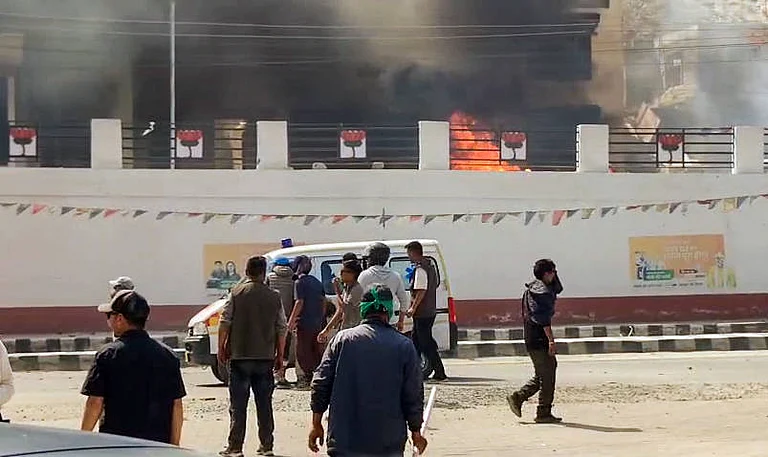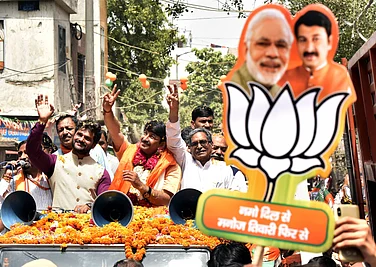On September 1, a group of Ladakhi protesters started marching on foot all the way from Leh to New Delhi to raise environment conservation concerns. The protest leader, environmentalist Sonam Wangchuk, has urged Prime Minister Narendra Modi to ensure Ladakh’s conservation by including it in the Sixth Schedule of the Constitution.
Expressing concern about Ladakh being an ecologically-fragile region facing industrial and climate-related challenges, the climate activist asserted the demand, telling the PM that it was crucial towards safeguarding Ladakh and its people.
As told to news agency Press Trust of India on the occasion, Wangchuk clarified that Ladakh Autonomous Hill Development Councils (LAHDCs) of Leh and Kargil were only given authority to spend development funds. He asserted that they should be given law-making powers too.
What is the Sixth Schedule?
In 1949, the Sixth Schedule was enacted as per Article 244 of the Indian Constitution.
This Constitutional provision is designed to protect indigenous and tribal groups by establishing Autonomous District Councils (ADCs) that have some legislative and judicial powers. These enable tribal regions to govern themselves to some extent.
During the colonial period, the British had kept some tribal areas in the North-East as “excluded provinces” or “partially excluded” provinces, where the laws of the provincial legislatures did not apply. This was done taking into consideration the distinct customs and traditions of the tribal areas.
After Independence, the Constituent Assembly formulated the Sixth Schedule as a way of continuing to give autonomy to the tribal regions in the North-East as a way of protecting their social identity, customs and language. This was based on the recommendations of the Bordoloi Sub-Committee chaired by Gopinath Bordoloi. When the matter came up for debate in the Constituent Assembly, Dr. B.R. Ambedkar defended keeping select tribal regions in the North-East under autonomous administration, saying: “With regard to the tribals in Assam…Their roots are still in their own civilisation and their own culture. They have not adopted, mainly or in a large part, either the modes or the manners of the Hindus who surround them.”
The ADCs are organised based on tribal groups. In places with significant populations of tribes other than the main tribe, Regional Councils (RC) are established.
In an autonomous district, if there are different Scheduled Tribes, the Governor can issue a public notification and divide the area inhabited by each tribe into autonomous regions.
So far, 10 autonomous councils in the country come under the Sixth Schedule: three each in Assam, Meghalaya, Mizoram and one in Tripura.
Why is Sixth Schedule important for Ladakh?
On various occasions during his long-term protests, Wangchuk has maintained that Ladakh’s conservation is impossible unless it is brought under the said constitutional provision. He asserts that places where nature, culture and land are sensitive issues are bound to be given protection under the Sixth Schedule, and that Ladakh is one such place.
It is a pressing issue in this hilly region, reportedly, as there is a major influx in tourists with the numbers touching half a million against a meagre 500 in 1974, when Ladakh was re-opened after a 25-year gap.
Wangchuk has pointed out that there are still many tribal households in Ladakh that manage with only five litres of water a day.
Coming under the Sixth Schedule will provide its people the kind of autonomy and control that can be aimed at sustainable development and safeguarding of its unique environment and the culture of its tribal people (reported to form 97% of Ladakh’s population).
Wangchuk told Outlook during his first climate fast in January 2023 that, “No Ladakhi has ever advocated separation from the Indian Union.” He has highlighted the Ladakhis’ unwavering support for India and its armed forces. But he also asked what stops the government from providing the necessary constitutional safeguards under the Sixth Schedule.”


























